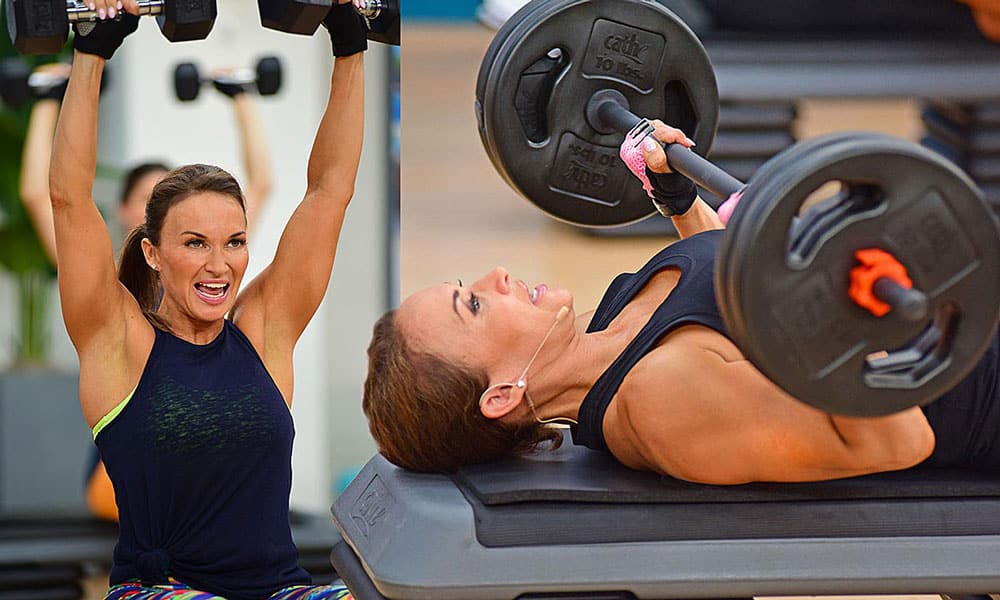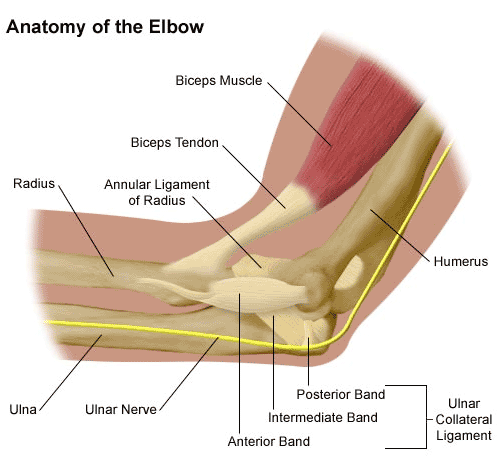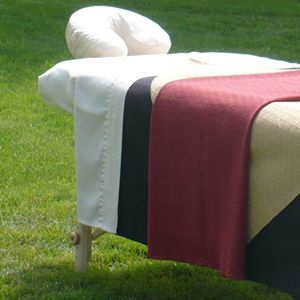Who doesn’t want a stronger upper body? Getting the functional benefits that having a strong and powerful upper body offers comes from working your upper body against resistance. Not only does upper body muscle definition look fantastic, but it also offers functional benefits that can improve your daily life. From carrying groceries to lifting heavy objects, a strong upper body helps you perform your daily tasks with ease.
But to get upper body strength, you need to work your muscles against resistance. To do this, you can choose a variety of exercises, but two classic exercises stand out: the overhead press and the bench press. Both exercises target different muscle groups and offer unique benefits for building upper body strength. Let’s compare and contrast the overhead press and the bench press to determine which reigns supreme in the realm of upper body strength.
The Overhead Press: A Test of Might
First, pressing overhead. The overhead press, also known as the military press, is a compound movement that primarily targets the deltoids, triceps, and upper back muscles. It involves pressing a barbell or dumbbells overhead while standing or sitting. Although pressing overhead mostly works your shoulder and upper back muscle, your triceps, upper chest, and core also get a workout.
Advantages and Disadvantages of Overhead presses
One advantage the overhead press has over the bench press is it’s more effective for building deltoid strength than the bench press. Plus, it works all three heads of the deltoid muscle. If your goal is to get more defined shoulders and build shoulder strength, the overhead press wins out over bench press.
The overhead press places a greater emphasis on the shoulders, aiding in the development of well-rounded deltoids. By pressing the weight overhead, you engage your stabilizer muscles, and improve your balance, coordination, and core strength as you build a stronger upper body. Plus, the overhead press helps increase shoulder mobility, making it invaluable for athletes and individuals seeking functional fitness. In addition, overhead presses are an excellent exercise for building triceps strength.
Still, there are some disadvantages to shoulder presses. For one, it can be a difficult exercise to perform safely. Pressing a weight overhead requires more stability and balance, which means you need a strong core too. Your shoulders are not designed for lifting heavy weights overhead. But you can lower the risk of injury by lighting up on the weights when you do this exercise.
Bench press: The Power of the Pectorals
The Bench press, a staple in most upper body workouts, focuses on the pectoralis major, triceps, and anterior deltoids. This exercise is performed by lying flat on a bench and pushing a loaded barbell away from the chest. It primarily targets the muscles involved in horizontal pushing motions, including the chest, triceps, and front shoulders.
Advantages and Disadvantages of Bench press
The bench press is a benchmark for upper body strength. It’s an exercise that places significant stress on the chest muscles, allowing for substantial muscle development of the pectorals. Bench pressing also activates the triceps and anterior deltoids, contributing to overall upper body power. Moreover, the Bench press allows for heavy loading, facilitating progressive overload and stimulating muscle growth.
So, if you’re trying to build stronger chest muscles, the bench press is your best choice, as the overhead press doesn’t work your pectorals to the same degree. The bench press is a safer exercise and requires less core stability to do the movement without injury. However, repeated bench pressing also places stress on your shoulders and, like overhead presses, may not be a suitable exercise if you have a history of shoulder injury.
The Verdict: Which Exercise Reigns Supreme?
While both the Overhead press and the Bench press offer distinct advantages, determining which exercise is better for upper body strength depends on individual goals and preferences. For shoulder development, core engagement, and functional fitness, the overhead press shines. On the other hand, if your main focus is on chest development and heavy lifting, the Bench press is a good option.
Incorporating Both for Optimal Results
For a well-rounded upper body strength routine, incorporating both exercises is a smart strategy. By combining the overhead press and the bench press, you can target a broader range of muscle groups and achieve a balanced physique. Consider alternating between these exercises in your training program to reap the benefits of both.
Also, consider whether you have limitations. For example, if you have a history of a shoulder injury, you’ll want to approach both exercises with caution and lighten up on the weight.
Conclusion:
By considering your goals, preferences, and the muscles you’re targeting, you can make an informed decision regarding the overhead press versus the bench press. Both exercises build upper body strength. The overhead press excels in developing well-rounded shoulders, enhancing core strength, and promoting functional fitness.
On the other hand, the bench press remains a heavyweight contender for chest development and heavy lifting prowess. Ultimately, the ideal approach lies in incorporating both exercises into your training routine. This will allow for comprehensive upper-body strength gains and a balanced physique. Embrace the power of variety and unleash the full potential of your upper body through the amalgamation of these two powerhouse lifts.
References:
- Schick, E., Coburn, J., Brown, L., Judelson, D., Khamoui, A., Tran, T., & Uribe, B. (2010). A Comparison of Muscle Activation Between a Smith Machine and Free Weight Bench press. Journal of Strength and Conditioning Research. https://doi.org/10.1519/JSC.0b013e3181cc2237.
- Hoppe MW, Brochhagen J, Tischer T, Beitzel K, Seil R, Grim C. Risk factors and prevention strategies for shoulder injuries in overhead sports: an updated systematic review. J Exp Orthop. 2022 Aug 16;9(1):78. doi: 10.1186/s40634-022-00493-9. PMID: 35971013; PMCID: PMC9378805.
- Dunnick DD, Brown LE, Coburn JW, Lynn SK, Barillas SR. Bench press Upper-Body Muscle Activation Between Stable and Unstable Loads. J Strength Cond Res. 2015 Dec;29(12):3279-83. doi: 10.1519/JSC.0000000000001198. PMID: 26540024.
- Chaves SFN, Rocha-JÚnior VA, EncarnaÇÃo IGA, Martins-Costa HC, Freitas EDS, Coelho DB, Franco FSC, Loenneke JP, Bottaro M, Ferreira-JÚnior JB. Effects of Horizontal and Incline Bench press on Neuromuscular Adaptations in Untrained Young Men. Int J Exerc Sci. 2020 Aug 1;13(6):859-872. PMID: 32922646; PMCID: PMC7449336.
- Błażkiewicz M, Hadamus A. The Effect of the Weight and Type of Equipment on Shoulder and Back Muscle Activity in Surface Electromyography during the Overhead Press-Preliminary Report. Sensors (Basel). 2022 Dec 13;22(24):9762. doi: 10.3390/s22249762. PMID: 36560129; PMCID: PMC9781216.
Related Articles By Cathe:
How Hand Placement Affects Bench Press Results
For More Effective Workouts, Science Says You Need Exercise Variety
How Shocking Your Body Can Lead to New Fitness Gains
What is Functional Hypertrophy Training?
Lifting Tempo: What Role Does Rep Speed Play in Strength and Power Gains?
5 Reasons to Add Resistance Bands to Your Training
What Does Research Show about Partial Reps vs. Full Reps for Strength Training?
Weight Training: Is It Better to Do More Sets?
5 Reasons You’re Not Making Strength Gains
How Giant Sets Can Jump Start Your Muscle Growth









